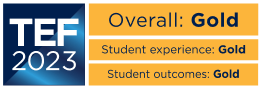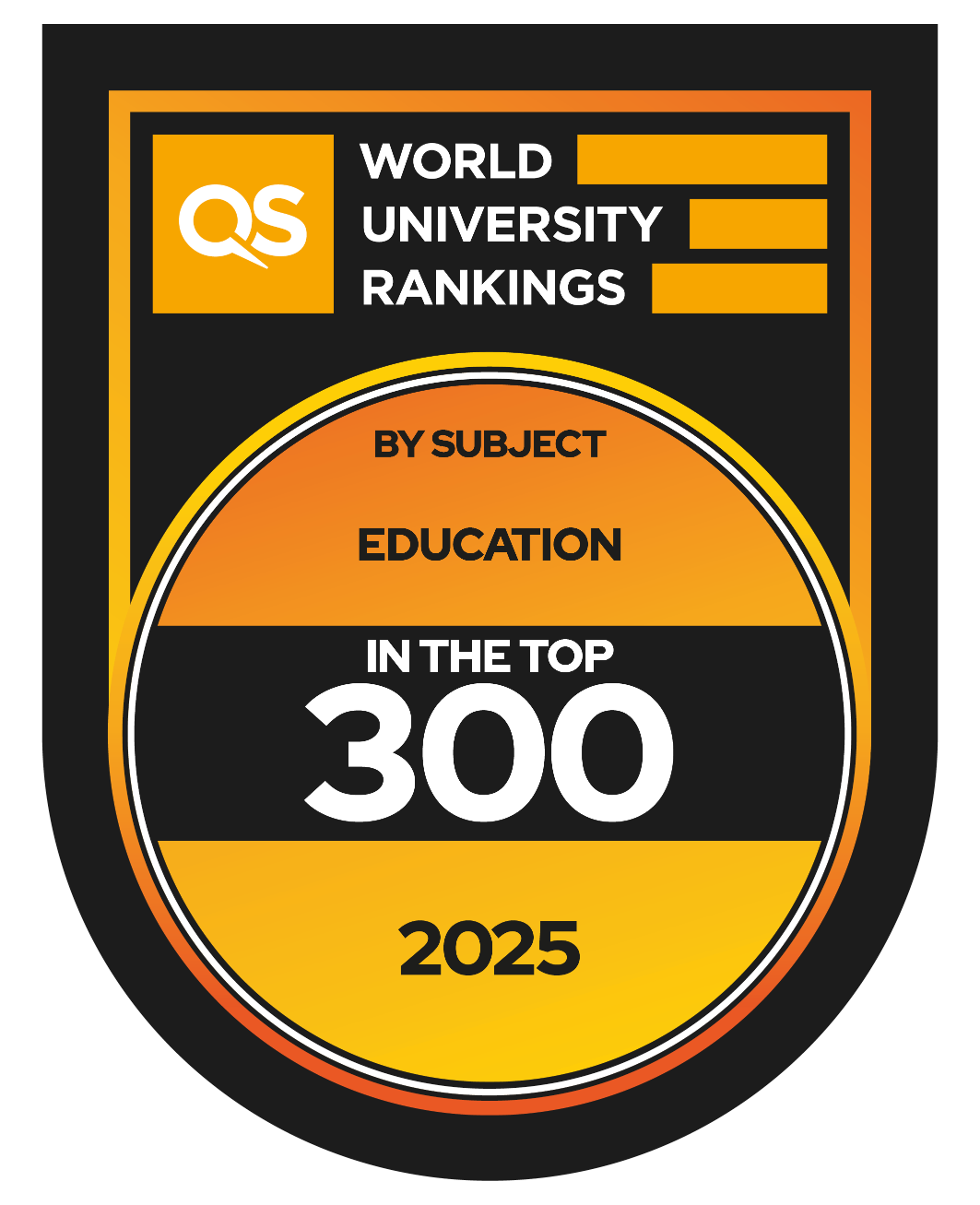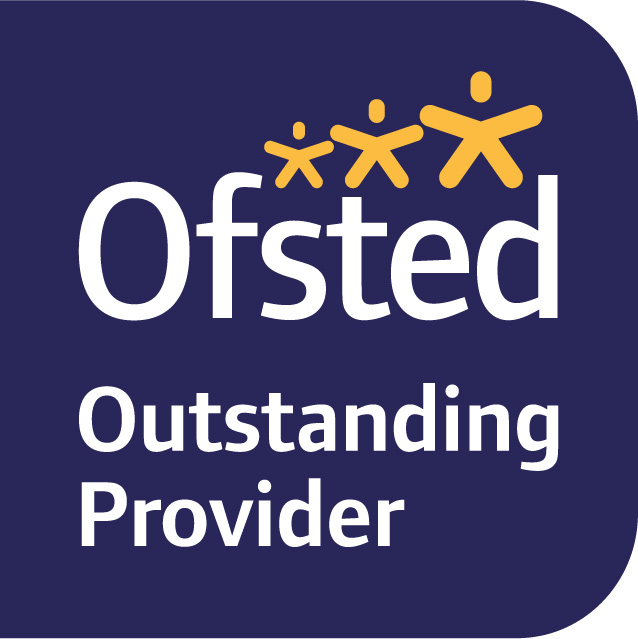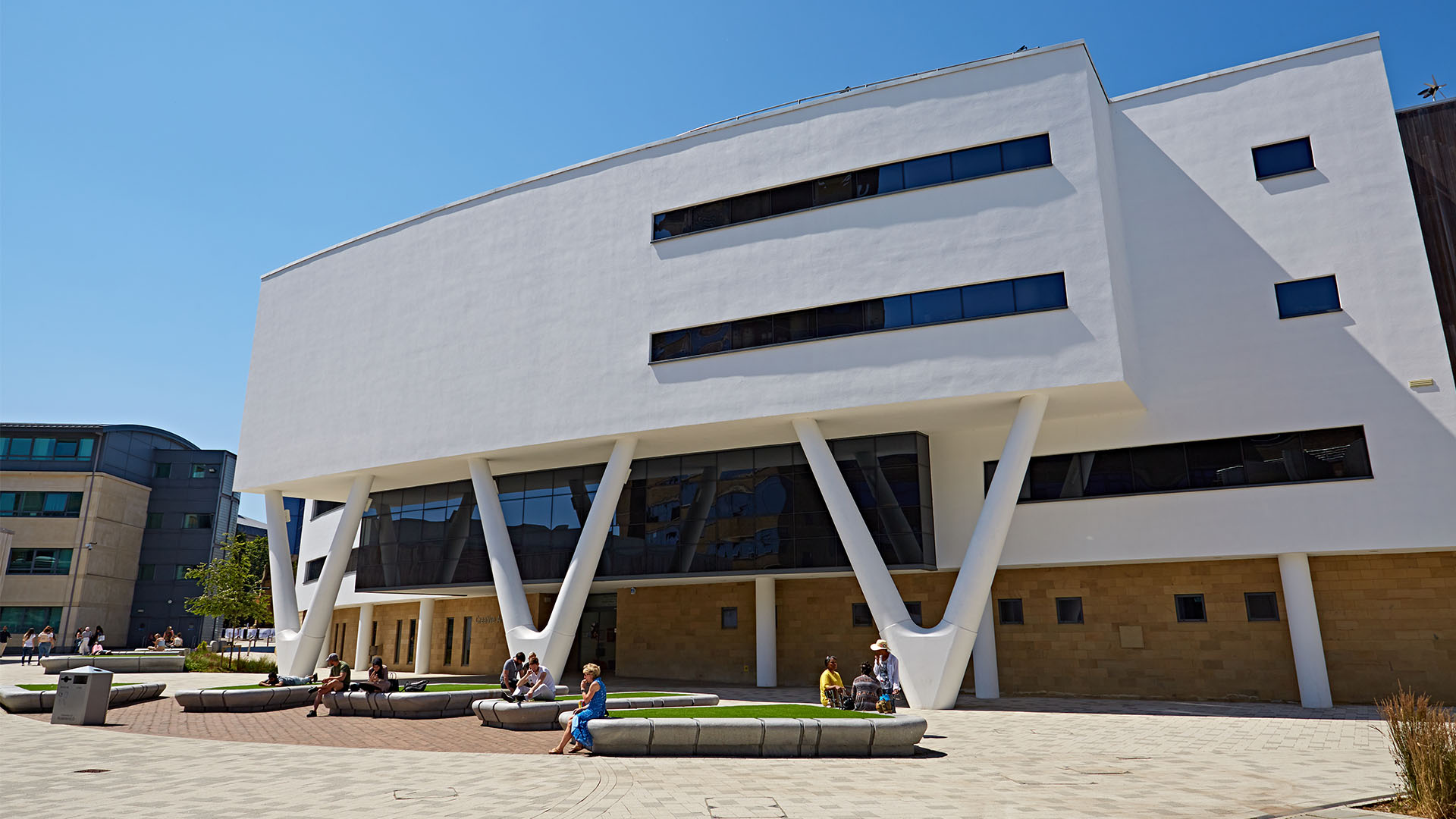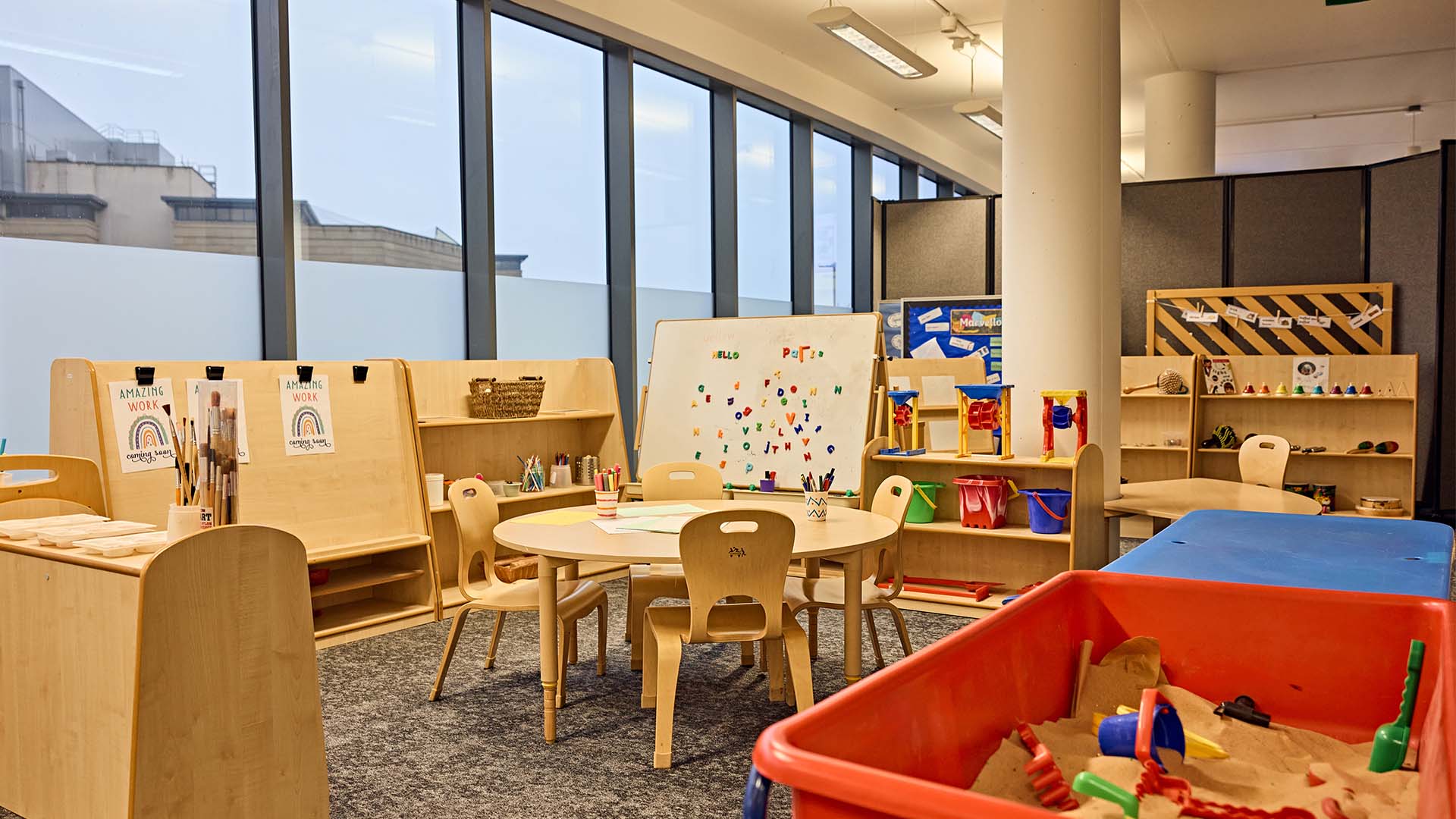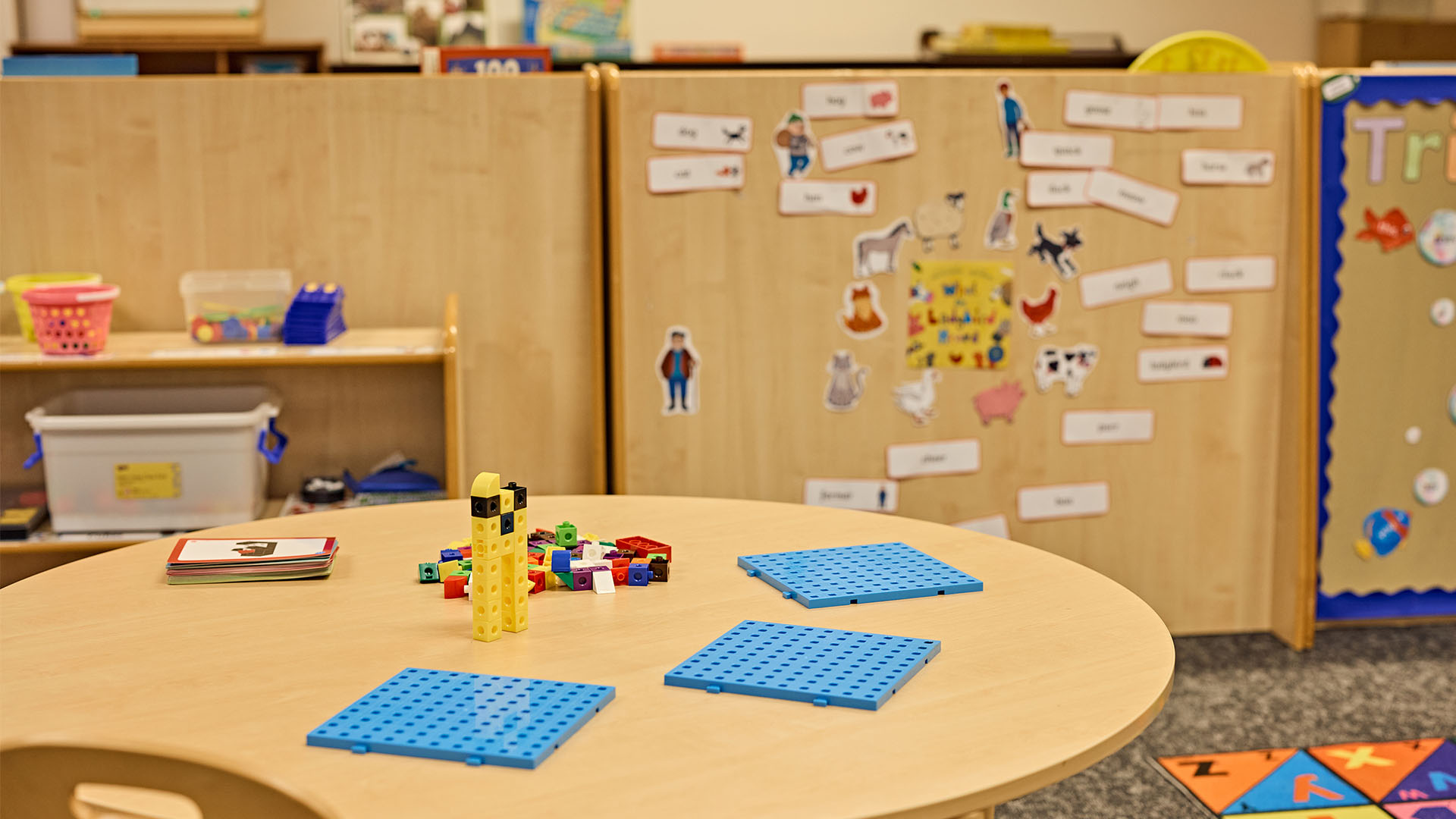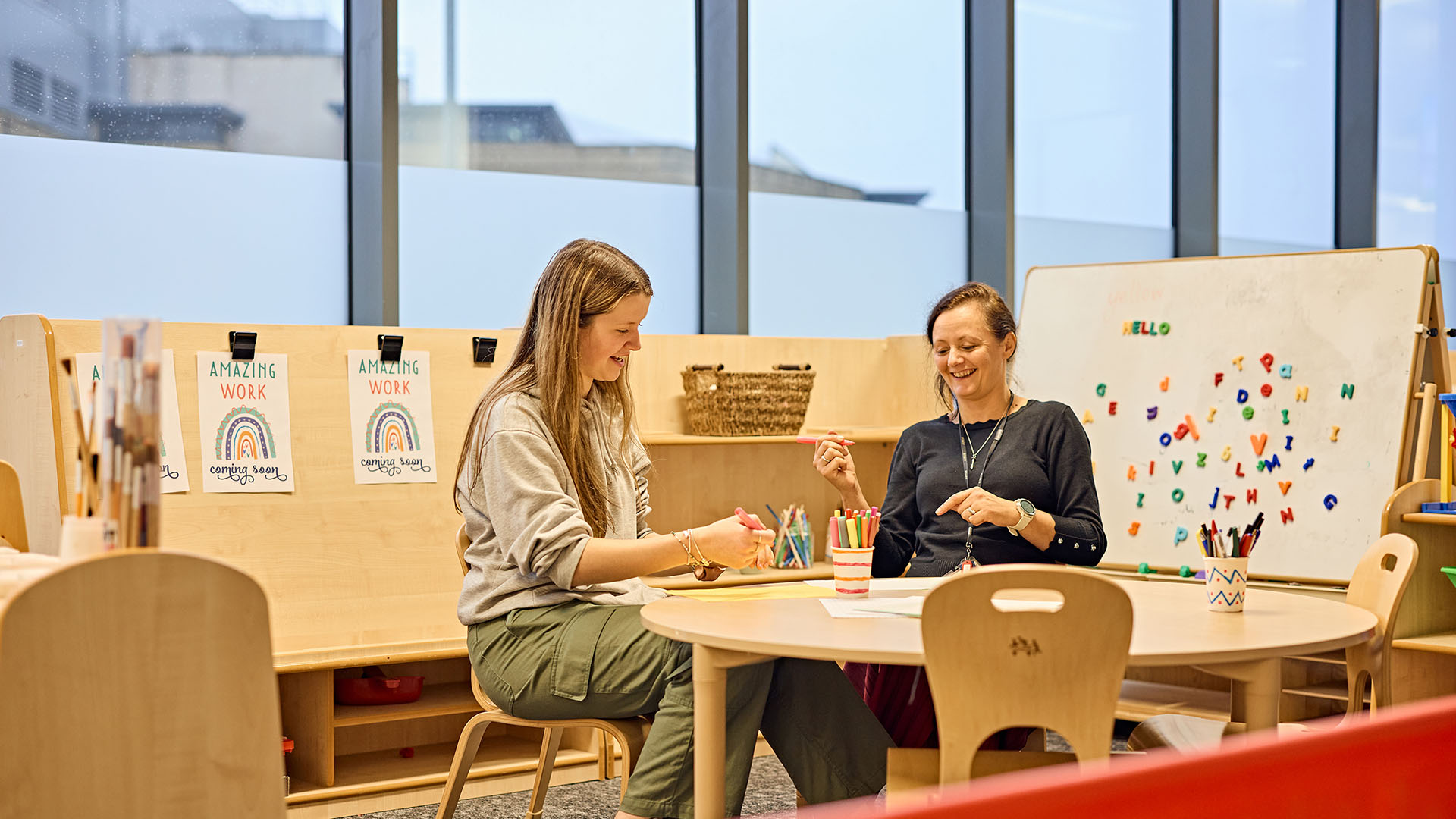
Purpose built, primary teaching class
Early Childhood Education and Care BA(Hons)
Start Dates
21 September 2026
Duration
3 years full-time
UCAS Tariff
112-104
Overview
Why choose Huddersfield for this course?
- Make a lasting difference. Explore how early experiences shape children’s lives and develop the skills to support their learning and wellbeing.
- Learn through real experience. Take part in work placements to build confidence and apply your knowledge in early years settings.
- Prepare for a range of careers. Whether you’re aiming for teaching, social care, or early years practice, this course gives you a strong foundation.
Early Years graduates with a strong understanding of early childhood, theoretical concepts and practice are well placed to act as advocates for children. This is particularly important because the experiences and environment which makes up a child’s early years can have a lasting impact on their development.
Therefore, it’s important children have the best possible start in life and our Early Childhood Education and Care course will equip you with the skills needed to ensure you can make a difference to last a lifetime.
Why study Early Childhood Education and Care BA(Hons)
Childhood and Youth Studies a Huddersfield is in the top quart in Englandin the 2024 NSS for Learning Resources*. Focusing on birth to seven years old, our course allows you to:
- Develop your knowledge of child development and how children grow and learn.
- Develop assessment for learning skills to monitor children’s progress and learning needs.
- Explore key issues that impact children’s learning and lives.
- Examine relevant theory, policy, research and early years practice.
- Develop holistic and reflective practice
- Gain insight into children’s wellbeing, social policy, children’s rights, cultures, safeguarding children and promoting a sense of belonging.
- Prepare you for your future career.
Work placements form a key part of the course, with your placement giving you the chance to gain real, practical experience in a professional environment.
These practical experiences, combined with your academic studies, will help you develop the skills that employers are looking for; some of our past students are now employed as primary and early years teachers, early years practitioners, social care, or NHS workers. Others are employed in special educational needs support, as teaching assistants, learning mentors and in early years training services roles.
You might decide to further your career progression by developing more skills as an early years practitioner. Progression may also include studying a postgraduate degree, before heading into the world of work. This course offers a great starting point for a range of career opportunities.
The top five job titles advertised in the UK for graduate roles associated with Early Years courses are Nursery Practitioners, Early Years Practitioners, Early Years Teachers. Nursery Assistants and Nursery Managers.**
*(Top quart in England £100m+ - All modes, all levels, taught, using England £100m+, limited to quartile = 1 and more than 10 institutions, shows rank within quartile also ")
**Lightcast data extracted from Graduate Career Explorer – job postings from Dec 2023 to Nov 2024 showing jobs advertised associated with a selection of relevant graduate.
Entry Requirements
BBC-BCC at A Level or equivalent.
DMM-MMM in BTEC Level 3 Extended Diploma, DD BTEC National Diploma or CACHE Diploma grade B relevant to working with children.
112-104 UCAS tariff points from a combination of Level 3 qualifications.
Access to Higher Education Diploma with 45 Level 3 credits at Merit or above.
Merit at T Level.
112-104 UCAS tariff points from International Baccalaureate qualifications.
In addition you must also:
- Have GCSE English Language at grade 4 or above (or equivalent, or grade C or above if awarded under the previous GCSE grading scheme).
- Provide a Disclosure and Barring Service (DBS) check and health clearances.
If your first language is not English, you will need to meet the minimum requirements of an English Language qualification. The minimum for IELTS is 6.0 overall with no element lower than 5.5, or equivalent. Read more about the University’s entry requirements for students outside of the UK on our International Entry Requirements page.
Other suitable experience or qualifications will be considered. For further information please see the University's minimum entry requirements.
Course Details
Choose one from a list which may include:
For more information on when and how we update our modules please see the ‘Legal Information’ section below.
Teaching and Assessment
Discover what to expect from your tutor contact time, assessment methods, and feedback process.
Global Professional Award
At Huddersfield, you’ll study the award-winning Global Professional Award (GPA) alongside your degree* — so you’re ready for the career you want, whatever subject you choose.
Placements
During your time on the course, you will be required to complete 240 hours of placement in Year 1 and 216 hours in Year 2, totalling 456 hours of compulsory placements across various educational settings.
Our network of placement settings includes Private, Voluntary, and Independent (PVI) providers, as well as schools, offering opportunities to work with children aged 0–7.
We will endeavour to place you in a location convenient to you.
Additionally, your dedicated course tutors will work closely with placement mentors to provide guidance and support throughout your experience, ensuring you gain maximum benefit from your placements.
Your placements could be based in areas some distance from your point of study, so please be aware of potential associated travelling costs.
I’ve just started my placement at a primary school, which I’m really excited about! I’m hoping it’ll help me understand what I want to do after my degree. Do I want to do a PGCE, or go into teaching further education, or become a social worker, or something else? There are so many things you can do with this degree.
- Ainaa Imran
Second Year Childhood Student.
Your Career
This course opens up a wide range of career possibilities. You'll develop transferable professional skills such as organisation, leadership, teamwork, communication, record keeping, and report writing — all essential for working with children and young people, promoting their wellbeing and keeping them safe.
Graduates go on to roles in early years practice, teaching assistance, social work, family support, educational pastoral support, special educational needs (SEN) teaching and support, training consultancy, early years marketing, speech and language support, health visiting assistance, and roles such as nannying or childminding. Please note that some of these careers may require further postgraduate study.
Your degree will also be valuable for roles in early years settings (including childminding), children's centres, community hubs, schools, local authorities, training organisations, and further education colleges.
If you’re looking to continue your studies, you might consider postgraduate routes into teaching (such as a PGCE), speech and language therapy, social work, disability or children’s nursing, play therapy, or educational psychology. You could also explore Master’s degrees in early years or childhood practice, pursue research assistant roles, or even work towards a PhD or start your own business.
86.5%
of undergraduate graduates from the School of Business, Education and Law in work or further study within fifteen months of graduating
* HESA Graduate Outcomes 21/22, UK domiciled graduates, other activities excluded.
I developed so many skills on the Early Years course – team working, time management and reflective skills – all are essential in a classroom environment. I also met some amazing friends and the tutors gave me constant support and understanding.
- Joe Tremble
Early Years Graduate
Fees and Finance
This information is for Home students applying to study at the University of Huddersfield in the academic year 2026/27.
Please note that tuition fees for subsequent years may rise in line with inflation (RPI-X) and/or Government policy.
From January 2027 the UK government is launching a new student funding system for people starting university education. Read more about the Lifelong Learning Entitlement (LLE).
For detailed information please visit https://www.hud.ac.uk/study/fees/
This information is for international students applying to study at the University of Huddersfield in the academic year 2026/27.
Please note that tuition fees for subsequent years may rise in line with inflation (RPI-X) and/or Government policy.
For detailed information please visit https://www.hud.ac.uk/international/fees-and-funding/
A Disclosure and Barring Service (DBS) check is required to enable you to undertake placements in settings with children. We arrange this as part of the application process. Please note that there may be a charge for the DBS check.
Scholarships and Bursaries
Discover what additional help you may be eligible for to support your University studies.
Tuition Fee Loans
Find out more about tuition fee loans available to eligible undergraduate students.
What’s included in your fee?
We want you to understand exactly what your fees will cover and what additional costs you may need to budget for when you decide to become a student with us.
If you have any questions about Fees and Finance, please email the Student Finance Team.
Gallery
Explore More
Why Hud
Explore the unique opportunities and resources that make our institution a top choice for students seeking a well-rounded and future-focused education.
More Info
Careers support
We know you’re coming to university to study on your chosen subject, meet new people and broaden your horizons. However, we also help you to focus on life after you have graduated to ensure that your hard work pays off and you achieve your ambition.
Find out more about careers supportStudent support
At the University of Huddersfield, you’ll find support networks and services to help you get ahead in your studies and social life. Whether you study at undergraduate or postgraduate level, you’ll soon discover that you’re never far away from our dedicated staff and resources to help you to navigate through your personal student journey.
See our support servicesTeaching Excellence
Great teaching is engaging and inspiring — it helps you reach your full potential and prepares you for the future. We don’t just teach well — we excel — and we have the awards and recognition to prove it.
Find out moreInspiring Academics
Our researchers carry out world-leading work that makes a real difference to people’s lives. Staff within the School of Education may teach you on this course.
Find out more about our staffResearch Excellence
You’ll be taught by staff who want to support your learning and share the latest knowledge and research.
Find out moreAccommodation
Looking for student accommodation? Huddersfield has you covered. HudLets has a variety of accommodation types to choose from, no matter what your preference. HudLets is the University’s approved accommodation service, run by Huddersfield Students’ Union.
Take a look at your optionsFurther Study
If you want to continue your learning beyond your undergraduate degree, there is a range of financial support available for postgraduate study, including discounts for Huddersfield graduates.
Discover postgraduate coursesLegal information
When you enrol as a student of the University, your study and time with us will be governed by our terms and conditions, Handbook of Regulations and associated policies. It is important that you familiarise yourself with these as you will be asked to agree to them when you join us as a student. You will find a guide to the key terms here, along with the Student Protection Plan.
Although we always try and ensure we deliver our courses as described, sometimes we may have to make changes for the following reasons:
Changes to a course you have applied for but are not yet enrolled on
If we propose to make a major change to a course that you are holding an offer for, then we will tell you as soon as possible so that you can decide whether to withdraw your application prior to enrolment. We may occasionally have to withdraw a course you have applied for or combine your programme with another programme if we consider this reasonably necessary to ensure a good student experience, for example if there are not enough applicants. Where this is the case we will notify you as soon as reasonably possible and if you are unhappy with the change we will discuss with you other suitable courses we can transfer your application to. If you do not wish to transfer to another course with us, you may cancel your application and we will refund you any deposits or fees you have paid to us.
Changes to your course after you enrol as a student
Changes to option modules
Where your course allows you to choose modules from a range of options, we will review these each year and change them to reflect the expertise of our staff, current trends in research and as a result of student feedback or demand for certain modules. We will always ensure that you have an equivalent range of options to that advertised for the course. We will let you know in good time the options available for you to choose for the following year.
Major changes
We will only make major changes to non-optional modules on a course if it is necessary for us to do so and provided such changes are reasonable. A major change is a change that substantially changes the outcomes, or a significant part of your course, such as the nature of the award or a substantial change to module content, teaching days (part time provision), type of delivery or assessment of the core curriculum. For example, it may be necessary to make a major change to reflect changes in the law or the requirements of the University’s regulators or a commissioning or accrediting body. We may also make changes to improve the course in response to student, examiners’ or other course evaluators’ feedback or to ensure you are being taught current best practice. Major changes may also be necessary because of circumstances outside our reasonable control, such as a key member of staff being unable to teach due to illness, where they have a particular specialism that can’t be adequately covered by other members of staff; or due to pandemics, other disasters (such as fire, flood or war) or changes made by the government.
Major changes would usually be made with effect from the next academic year, but may happen sooner in an emergency. We will notify you as soon as possible should we need to make a major change and will consult with affected groups of students and any changes would only be made in accordance with our regulations. If you reasonably believe that the proposed change will cause you detriment or hardship we will, if appropriate, work with you to try to reduce the adverse effect on you or find an appropriate solution. Where an appropriate solution cannot be found and you let us know before the change takes effect you can cancel your registration and withdraw from the University without liability to the University for any additional tuition fees. We will provide reasonable support to assist you with transferring to another university if you wish to do so and you may be eligible for an exit award depending on how far through your course you are.
In exceptional circumstances, we may, for reasons outside of our control, be forced to discontinue or suspend your course. Where this is the case, a formal exit strategy will be followed in accordance with the student protection plan.
The Office for Students (OfS) is the principal regulator for the University.
